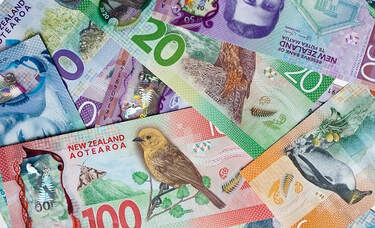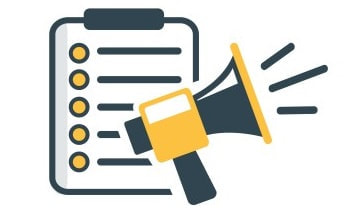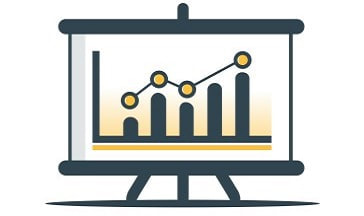8 Top Ways to Get Free Money from the New Zealand Government
Our trusted guide outlines proven ways to get free money, including childcare subsidies, electricity and utility payments, first home deposit assistance, course fees and living costs.
Updated 22 August 2022
Struggling with your finances is stressful, but support is available from the NZ Government. Plenty of programs exist to help low and middle-income families make essential expenses more affordable. New Zealand has long been a welfare state, and despite negative media reports about Work and Income, those willing to help themselves can be supported with short-term help. If you’re worried about how you’ll make ends meet this month or in the short term, this guide has you covered.
This guide covers:
This guide covers:
- Utility Bill Assistance - get up to $200 to help pay essential bills
- Childcare Subsidies - get up to $261 per child per week to spend on childcare
- Unclaimed Money - over 15,000 people are owed an average $800, are you one of them?
- KiwiSaver Annual Government Contribution - get $500+ per year from the government
- House Deposit Assistance - receive up to $20,000 to put towards a first-home purchase
- Fees for higher education - receive up to $12,000 credit for fees to help with higher study
- Scholarship grants - apply for relevant scholarships if you're studying beyond high school
- Government Rebate for Electric Vehicles - free money if you buy a qualifying car
Seven options for free money available right now
Utility Bill AssistanceIf you are having trouble paying your utility bills (for example, electricity) and are at risk of being cut off, you may be eligible for assistance from Work and Income. Best of all, you don’t have to currently be on any benefits program to qualify.
Do I qualify? To be eligible for assistance, you must meet the following conditions:
What can I get? The program provides up to $200 in utility bill assistance for power, gas, or water. It can be used for an outstanding bill or to reconnect services. How do I apply? Apply online through myMSD unless you have an urgent need that needs a resolution within 24 hours, then call 0800 559 009 for an immediate appointment. |
Childcare SubsidiesLow and middle-income families may qualify for a childhood education subsidy for young children. The program is open to anyone with children under the age of 5 that are attending an early childhood programme for at least 3 hours per week.
Do I qualify? You may qualify if:
What can I get? The amount you receive depends on your lifestyle.
The amount you receive is dependent on your family dynamics, including your family size and income as well as how many hours your child will need childcare. The subsidy is paid directly to your childcare provider. To find out how much you qualify, refer to this benefit table published by WINZ. How do I apply?
|
Unclaimed MoneyUnclaimed money isn't technically ‘free money,’ unclaimed money is only yours if you qualify for it. However, thousands of New Zealanders are unaware they have balances owing.
If you have money sitting in an account or with an organisation that has gone unclaimed, the money makes its way to the Crown, most notably the Treasury or the Inland Revenue Department. The most common type of unclaimed funds includes:
The IRD provides a service for the true owners of unclaimed money which has been left untouched for six or more years in companies such as financial institutions and insurance companies. Unclaimed money is not income tax refunds or any other unpaid tax refunds. Our historical analysis of the data in February 2020 confirmed 17,000+ people were owed money, with the average balance around $860. Download our data here. How do I apply?
|
KiwiSaver Annual Government ContributionThe NZ government will contribute 50 cents for each dollar you contribute to your KiwiSaver fund, up to a maximum of $521.43. To be eligible, you'll need to join KiwiSaver and contribute a minimum amount.
Do I qualify?
What can I get?
How do I apply?
|
House Deposit AssistanceIf you’re ready to buy a home but don’t quite have the deposit saved, you may qualify for one or two home deposit payment assistance programs.
If you have a KiwiSaver balance, you can also apply to withdraw it and put it towards your first-home deposit.
|
Fees for higher educationIf you've not studied at a level beyond high school before, the government offers up to $12,000 in free fees. It's not 'free money' but it's a grant that helps you upskill and improve your earning potential.
Do I qualify? You may be eligible for Fees Free if you are:
What can I get? You can get one year of tertiary study or two years' training up to the value of $12,000 fees-free:
How do I apply? Check you are eligible using the Free Fees website, and look at our guide to New Zealand's education providers. Student Allowance
|
Living expenses for anyone studyingNew Zealand universities, private training organisations, public and private organisations and Maori and Pacific trusts offer millions of dollars of scholarships annually. Our Scholarships lists hundreds of options available and the qualification requirements.
What can I get? Some scholarships offer $500 one-off grants; others provide over $100,000. Many Maori and Pacific Island scholarships go unclaimed every year. How do I apply? Each scholarship is different, consult our Scholarships guide to see what's relevant for you. Despite it being aimed at Year 13 students, there are numerous options for older students. |
Government Rebate for Electric VehiclesDrivers who buy new cars from July 1 2021 will get taxpayer-funded rebates of $8,625 for new battery electric vehicles and $3,450 for used vehicles. Hybrid vehicles are also eligible for rebates ($5,750 for new vehicles, $2,300 for used vehicles).
Per the NZTA's guidelines, vehicles with a purchase price of $80,000 or more (including GST and on-road costs) and those with less than a 3-star safety rating (as published on the Rightcar website) will not be eligible for a discount (rebate). Applying for the rebate: From 1 July 2021, you can apply for a rebate on the NZTA website after the vehicle is registered and allocated a number plate. More details are outlined here. More information: You can view a useful chart of the 2022 Clean Air Program here . |
Important - Do Your Research
- Like anything else in life, there are always ‘scammers’ out there looking to take advantage of the vulnerable. New Zealand is no exception, with much cybercrime being conducted overseas with our police powerless to help stop it.
- Don’t accept unsolicited grants or ‘free money’ opportunities that comes your way via email or phone. Do your research; make sure the links you click are truly government-related programs.
- Be aware that the government never randomly sends out emails in the hopes that people will take advantage of the free programs. Instead, you have to seek them out – so if you are sent an email or letter in the mail, be wary of it and find out if it’s truly official.











